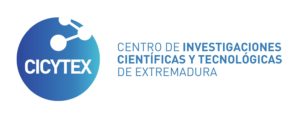Klaus Peklo, a specialist in bioengineering and a member of the ECOMED project, accepted our invitation and visited the burnt area of Mata da Margaraça. The purpose of this visit was to understand the extent of soil erosion after the 2017 fire and to outline strategies and solutions to solve this problem.
The October 2017 fire affected much of the Mata da Margaraça. Since then, several erosion phenomena have become evident, including several landslides, some of which are large. Bioengineering is a technical-scientific discipline that combines knowledge of engineering and biology, using flora and plant communities in order to protect the soil and infrastructure. The ECOMED project aims to generate a theoretical and practical sectorial program, essential for the specialization process of the Mediterranean Ecoengineering sector. Through this visit synergies and knowledge exchange were created between these two European projects (LIFE and ECOMED), which brought new perspectives and contributions to the management of the Life-Relict areas, but also to the management of Mata da Margaraça as a whole.
In addition to the Life-Relict team, Professor João Almeida Fernandes (University of Évora), Doctors João Boléo and Silvia Neves from the Serra do Açor Protected Landscape (ICNF) and Artur Costa and Alexandre Silva from the Municipality of Seia were also present .








